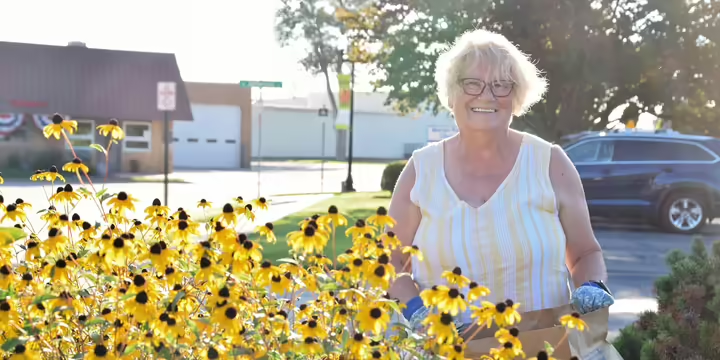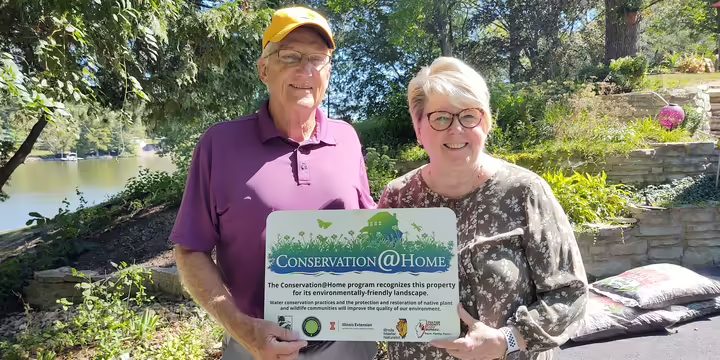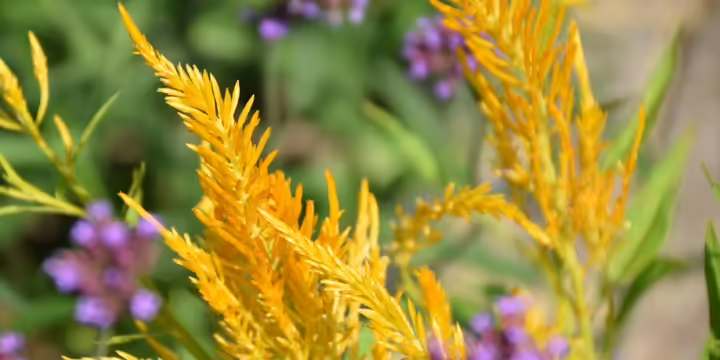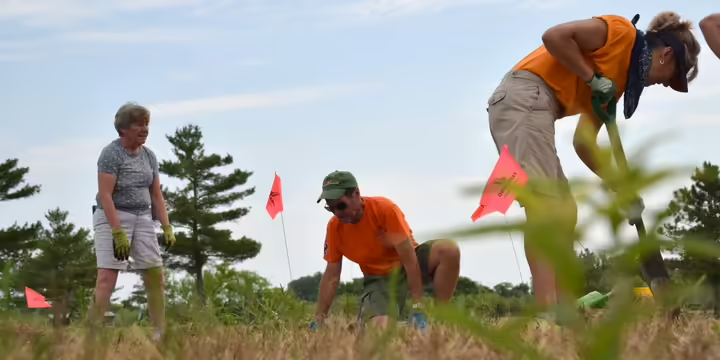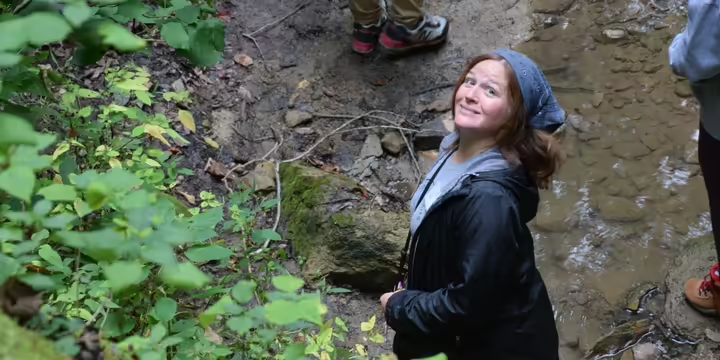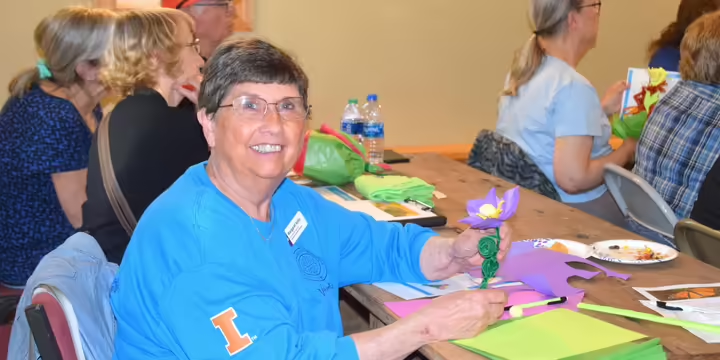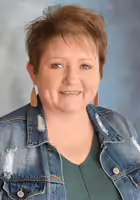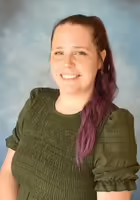
Master Naturalists
University of Illinois Extension's Illinois Master Naturalist Program is designed for adults of any age that want to learn about and positively impact their local environment. The goal of the program is not to teach you everything there is to know about the subjects being covered, but to give you an engaging exposure to the natural world--one that encourages you to seek lifelong learning opportunities to further your development as a naturalist.
Master Naturalist Program participants have the opportunity to:
- learn about Central Illinois' natural history, ecosystems, plant and animal communities, and environmental issues
- enhance your love of nature through hands-on training and community-based service
- practice lifelong learning and sharing
- interact and build relationships with new acquaintances with similar interests
- give something back to nature and your local community
- and learn from and work side-by-side with experts
Master Naturalists must complete 60 hours of field, classroom, and digital learning and 60 hours volunteer service within two years to become a Certified Master Naturalist. To remain active in the program, an additional 30 hours volunteer service and 10 hours of continuing education must be performed yearly.
Adult learners can also take the same educational training, which we refer to as Natural Resources Core Education class, for professional and personal development only. This is the non-volunteer option.
This flyer is a handy resource to use to invite others to become a Master Naturalist.
Naturalist Core Education Training is the first step to becoming an Extension Master Naturalist. The next training is scheduled for October 13 - 17, 2025. Complete details coming soon. To have an idea of what the training schedule may look like, you can view last years details below.
Green Connections Newsletter
Volume 3 - 2026
Volume 2 - 2025
- Vol. 2 - Issue 1 - March 2025
- Vol. 2 - Issue 2 - May 2025
- Vol. 2 - Issue 3 - July 2025
- Vol. 2 - Issue 4 - October 2025
Volume 1 - 2024
- Vol. 1 - Issue 1 - April 2024
- Vol. 1 - Issue 2 - June 2024
- Vol. 1 - Issue 3 -August 2024
- Vol. 1 - Issue 4 - October 2024
Speakers Bureau Request
University of Illinois Extension Master Gardeners and Master Naturalists are available to provide educational presentations at your request.
Our Speakers Bureau provides a variety of garden and nature-inspired topics, free of charge (except when noted for workshop materials).
Steps for Joining
You become a Master Naturalist by applying to the program, going through background checks, being accepted into a class, completing the training, and providing volunteer hours to the Master Naturalist program.The Master Naturalist Program is eligible for CPDU credits.
- Master Gardener/Master Naturalist Application
- Attend an informal interview and submit required documentation below
- Complete payment - $250 for Fulton, Mason, Peoria, and Tazewell counties
- Attend Master Naturalist Training
- Complete and report 60 hours of volunteer internship
Mission and Goals
Mission:
To develop an expanding corps of well-educated volunteers to provide service and support for partnering organizations in the conservation, restoration, management, and interpretation of natural resources and natural areas in Central Illinois.
Goal 1:
Offer Master Naturalist educational programs and materials that provide classroom and field based training on the environmental and cultural resources of Central Illinois.
Goal 2:
Cultivate volunteers to serve as educators and community ambassadors for environmental initiatives; as stewards in the management of natural resources in Central Illinois; and as stakeholders who will perpetuate the Master Naturalist Program.
Objectives:
- Offer assistance in developing new and enhancing existing environmental education offerings to the community.
- Provide assistance with the stewardship of regional natural resources.
- Act as ambassadors who expand community awareness of environmental activities and initiatives.
Goal 3:
Facilitate cooperation and collaboration among partnering groups and agencies.
Objectives:
- Attain representation from local conservation and cultural resource groups on Master Volunteer Advisory Board.
- Identify and approve service projects with partnering groups.
About Our Program
Why Become a Master Naturalist?
Nature is everywhere, in your neighborhood, in your backyard, and in your house. Becoming more educated about the natural world increases your awareness and appreciation of it, enriching your everyday life. In the tradition of John Muir, John James Audubon, and even Teddy Roosevelt, as a naturalist you can contribute to conservation and a greener world. And you can play an important role in sharing that world with others in your community.
What Qualifications Must I Meet?
Anyone can become a Master Naturalist - it does not require a degree or years of experience. You do, however, need to:
- Have a sincere desire to learn and share natural resource information within your community
- Be able to communicate effectively
- Be willing to devote time to volunteering and continuing education
What Does the Training Involve?
Training sessions are typically offered one day a week over a three-month period and are led by expert educators in the region. Approximately 60 hours of classroom instruction and field study and 60 hours of volunteer internship work are required to complete the program and become certified. In order to remain a certified Master Naturalist, 30 hours of volunteer work and 10 hours of continuing education or advanced training are required each year.
Example Master Naturalist Volunteer Opportunities
- Stewardship projects: examples include Prairieland Conservancy, Forest Park Nature Center, Wildlife Prairie Park, Rocky Glen
- Educational youth programs: examples include Jr. Master Naturalist 4-H Club, Discovery Days, Clean Water Celebration, Science Adventure Day
- Community Science programs such as Audubon Society Christmas Bird Count, BeeSpotter, Bumble Bee Watch, FrogWatch USA, CoCoRaHS, Great Backyard Bird Count, Great Sunflower Project, Illinois RiverWatch, iNaturalist, Monarch Watch, Monitoring of Owls and Nightjars, and Project Squirrel.
- Writing: educational articles for newsletters, blogs, magazines, etc.
- Conservation@Home
- Speakers Bureau
Resources
Report Master Naturalist Hours Online
Partner Programs
Master Naturalist Photo Albums
2025 Photo Albums
Christine Belless' Retirement Ice Cream Social | Wildlife Prairie Park Flowerbed Clean-Up | Volunteer Appreciation Week | Horticulture Core Education Training | Naturalist Core Education Training | Mason State Tree Nursery Seed Collection | Green Connections Events | Guided Hikes | State Master Naturalist Conference | Conservation@Home Garden Tour
2024 Photo Albums
Naturalist Core Education Training | Master Volunteer End-of-Year Celebration | Clean Water Celebration Watershed Stations
2023 Photo Albums
Master Volunteer Christmas Party | Native Plant Demonstration Garden - Fulton Farm Bureau Building | Master Volunteer Meeting - Sustainable Landscape Design / Conservation@Farm Prairie Tour, Fowler Farm / Conservation@Home Training / Junior Master Naturalist 4-H SPIN Club / Master Volunteer 12 Days of Christmas Party / Patch of Prairie Program / Jake Wolf Muskie Spawning Tour /
2022 Photo Albums
Master Naturalist Hike at Prairie Hills Wetland Reserve, Banner / Fulton Fall Celebration 2022 - 4-H, Master Gardeners, Master Naturalists / Fowler Farm Prairie Tour 2022 / Master Naturalist Training 2022 / Science Adventure Day, Canton 2022 / Horseshoe Bottoms Hike /
2021 Photo Albums
Master Naturalist Training 2021 / Rocky Glen Tour / Bellrose Island Tour /
2020 Photo Albums

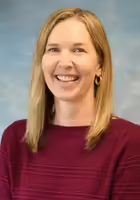
Karen Weigelt

